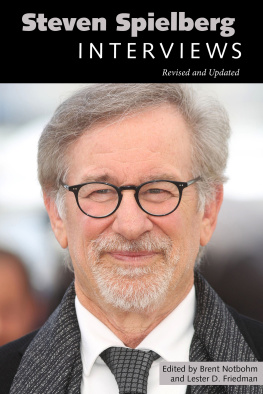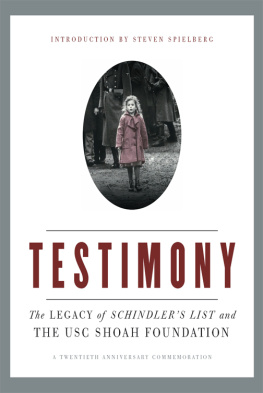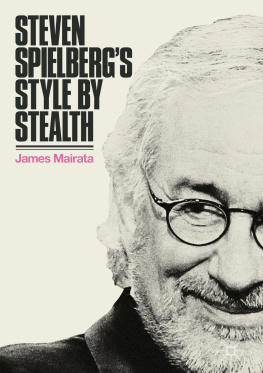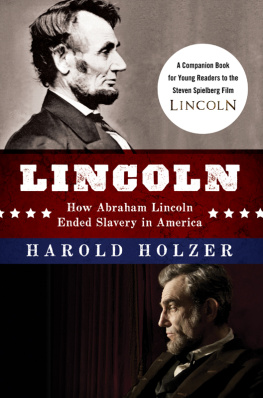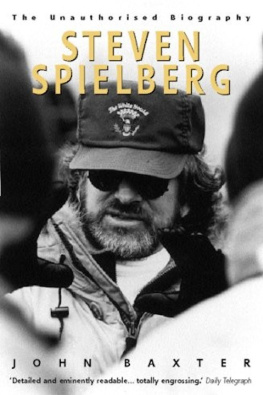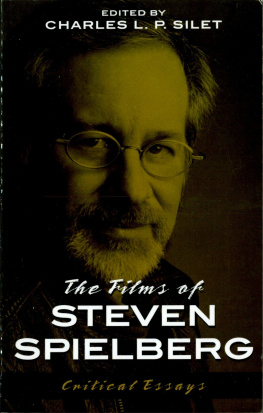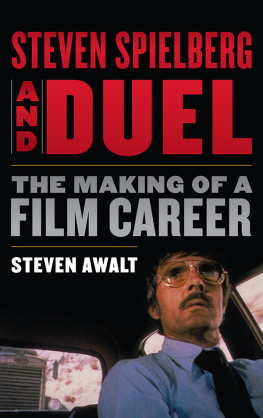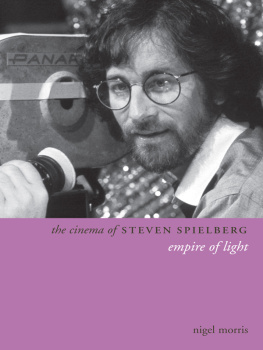I vividly remember that afternoon in a way that only someone whose life has been dramatically altered by the birth of a child can. It is ingrained in my memory since it was the first time in the days following the birth of my son, Hunter, that I had any sense of self. And although I should have been savoring a much-needed moment of solitude, I was overcome with doubt and questions that I had pushed aside in lieu of feeding Hunter and changing his diaper.
At that instant, all I could think about was, how did Steven Spielbergs mother do it? How did she raise such a well-rounded son who has risen to the zenith of his chosen profession, manifests his generosity through countless philanthropic pursuits, and is a happily married dad on top of it all? How did Mrs. Adler raise such a menscha man with admirable characteristics like fortitude, a big heart, and the courage of his convictions?
I had to know.
But Leah Adler was just the tip of the iceberg. I wanted to knowin fact, I had to know: what did the mothers of these successful peoplethe movers and shakers who have gone on to define their generation, to break world records, and to leave irreparable marks in their respective fieldsdo to help their children get where they are today? I started to think about all of the mothers I wanted to question. How did Terri Augello, Alicia Keyss mother, raise a nine-time Grammy Awardwinning daughter, who is also active in many charitable organizations that inspire and encourage American youth? What did Linda Armstrong Kelly, Lance Armstrongs mother, do to raise a seven-time Tour de France winner who battled testicular cancer and then went on to win the Tour two more times after that? How did Gladys Clash, Kevin Clashs mother, help him cultivate the artistic talent that led him to create the iconic Elmo character? What did Jean Hayes, Diane Sawyers mother, do to contribute to her rise from a local reporter in Kentucky to anchor of ABCs Good Morning America ? And how did Dot Jeter, Derek Jeters mother, raise a son who has the sixth-highest lifetime batting average as well as his own charity to encourage young people to stay away from drugs and alcohol?
I craved the answers to these questions because, like any new parent, my time was consumed by my work and my family. But my brain was constantly rattling with questions about parenting. Will that sugary cereal really influence his eating habits for the rest of his life? Does an extra hour of television on weekends mean hell struggle as a reader when he reaches third grade? What can I dorealisticallyto give him the best childhood possible? How can I, as a mother, build the best foundation for the adult he will become?
I didnt have time to sift through countless parenting books. Moreover, I wasnt interested in hypotheses about how to parent. I wanted concrete examples of how real mothers of successful people had raised their children. And so, I began writing Mother Nurture. No matter what race, religion, or socioeconomic status, we are all mothers and we all have the same goal as parents: we want our children to be successful in life; success can mean different things to everyone. Childrens success might mean to get the best education they can, to be inspired and fulfilled by their careers, to get married and have children, or to give back to the community. Whatever your definition of success is, as parents we all want the best for our children.
Of course, nurture is only part of the equation, and Mother Nurture is certainly not a scientific, psychological, or sociological study of motherhood. I think I even missed Psychology 101! Rather, it is my gift to regift what I learned through conversations with fifty-two mothers of the most driven, creative, and philanthropic people in this country.
Writing this book illustrated to me what any parent in the twenty-first century knows. Parenthoodnot to mention childhoodhas fundamentally changed. And while many modern advancesfrom disposable diapers to microwavable chicken nuggets to an abundance of educational and entertaining DVDsmake motherhood today easier, it has also gotten a lot more complicated. During so many of my conversations with these mothers, we would talk about a time when there wasnt such a thing as organized play, educational television was limited to Sesame Street, and enrichment classes were pretty much just ballet lessons or after-school sports.
Contrast that with today. I worry that if I give Hunter a cookie, hell get addicted to sugar and grow up to be obese. Im scared that if I am not constantly trying to stimulate him, or that if he watches TV, hell grow up to be lazy and unmotivated. My husband and I are so busy working to provide him with all the things he needs, Im sometimes concerned that were not giving him the one thing he needs mostus.
This is not a how to book. Taken as a blueprint, a road map, or system to make your child the next big baseball player (or lawyer, or doctor, or CEO), the point is lost. Instead, my hope is that youll take from this book a collage of perspectives. Maybe youll draw inspiration from Uma Thurmans mothers Buddhist approach to parenting, or from how Mary Aigner, the mother of Julie Aigner-Clark, the founder of the Baby Einstein empire, took her daughter to the library every Friday, or from the innovative way Madeline McElveen, the mother of Red Cross president Bonnie McElveen, taught her how to cross the street.
Whatever it is, I know this is a gift that will keep giving.


Just do well and be your own person.
M ary Aignerthe mother of Julie Aigner-Clark, whose brainchild Baby Einstein has become a household name and revolutionized the baby toy industrysaid that Julie was born under a lucky star. Things pretty much always went well for Julie, Mary said. Julie, the founder of the Baby Einstein Company, sold the organization to the Walt Disney Company in 2001. Her company was the first to produce developmental media, including DVDs, music CDs, books, and toys that focus on the arts and humanities, for very young children. Julie is also founder of the childrens media company the Safe Side, which is responsible for the three-time Emmy Awardwinning videos Stranger Safety and Internet Safety . Julie and her companies have been featured on The Oprah Winfrey Show, Live with Regis and Kelly, and Entertainment To- night as well as in the New York Times, the Wall Street Journal, and Parenting magazine. Julie has received numerous awards for her work, including Ernst & Youngs Entrepreneur of the Year Award; Working Mother s Entrepreneur of the Year Award, in three categories; and the Distinguished Alumni Award from Michigan State University for starting a billion-dollar industry focused on stimulating the minds of infants and toddlers. In 2007, Julie was personally honored by President Bush at the State of the Union address. Julie donates to a number of organizations but has been particularly active with the National Center for Missing and Exploited Children (www.missingkids.com). In addition, Julie is involved with the Elephant Sanctuary in Hohenwald, Tennessee; the World Wildlife Fund; the Gathering Place (a local shelter for women and children in Denver); and the Logan School for Creative Learning. Julie continues to teach middle-school literature and lives in Colorado with her husband and two daughters.


